Outward Bound Intercept is a program designed for teens and their families facing challenging circumstances and need a reset. From 28 to 50 days long, expeditions move through phases that focus on developing positive decision-making skills, strengthening interpersonal relationships and cultivating a positive self-image.
A lot happens on an Outward Bound Intercept course. It is difficult to distill the multitudes of experience into a short bit of writing. The following guide is broken down into a week-by-week timeline that outlines major course themes and outcomes of an Intercept course. By the end of an Intercept course the student and their family will learn how to:
- Utilize assertive communication tools
- Address conflict with humility and compassion
- Set and achieve measurable goals
- Learn how to advocate for what they need in a relationship
- And much, much more!
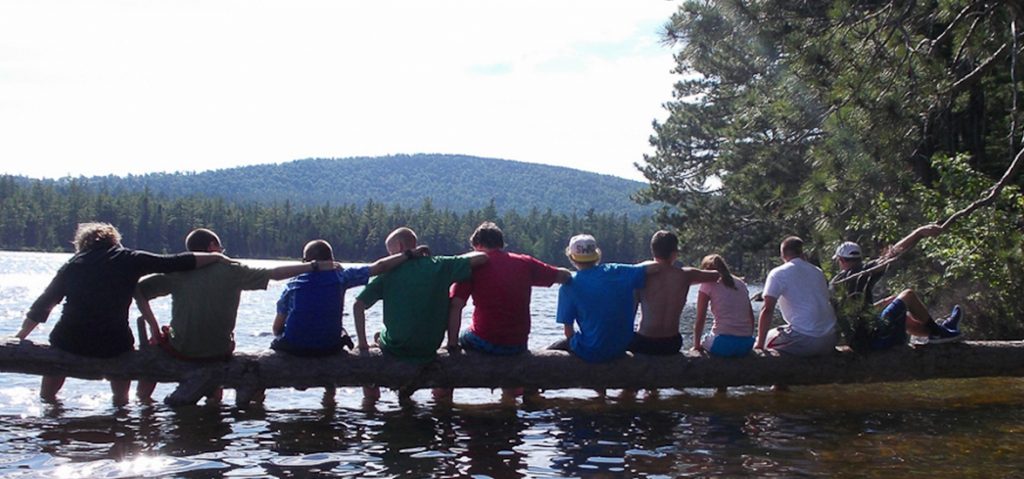
Pre-Course
An Unfiltered Realness
This is where it all starts. This may be exactly what a family looking at the Intercept program has been feeling for days, weeks, months or even years – and that’s okay. Acknowledging that there is an issue is the first step to change. As a family, you have to look at one another and say, “Something isn’t quite working, let’s do something about it.”
Incentives: Quality Over Quantity
Outward Bound is a relationship-based program in everything that we do. We cook together, we eat together, we travel together and, most importantly, we work together. Crafting a relationship-based incentive between you and your child is the first step to working together as a family. Reaching an agreement during a time of conflict can set the stage for success before an Outward Bound Intercept course has even started! For example, an agreement could be if your teen graduates from Outward Bound he or she is able to apply for their driver’s license, and if graduation doesn’t happen, he or she cannot apply for their driver’s license. It sounds straightforward and concrete, right? That’s great, and you can also go a level deeper. In addition to earning their driver’s license, emphasize that you will teach him or her how to drive a car, or teach basic vehicle maintenance when your teen gets a car of their own, or any myriad of activities that get you and your child doing something together. Build the relationship into the incentive.
Eat a Good Meal
One of the most talked about subjects on course is food. Not a day goes by without reference to a food that somebody longs for or a comfort dish that would satiate a day’s hunger. The night before your child departs, have a nice meal together as a family. It may or may not seem like a big deal in the moment, but it will as the next few weeks unfold.
Week One
The Departure
It’s Day One, and you just dropped your child off at the airport – now what? Breathe. Relax. It’s okay. A common thread that all families will share in this experience is the moment when you say goodbye for the next 27 days. The significance of this moment should not be overlooked. The feelings that accompany departure are widely diverse. Perhaps one family might part amicably while another is burdened with sadness and frustration. Some families might even feel a sense of relief, and that’s okay too. Regardless, allowing time and space for the relationship to breathe will allow each of you to look inward and ask yourselves, “How am I participating in this relationship?”
Skills Acquisition
Throughout the duration of the course Instructors will teach students how to paddle, portage and live comfortably in the wilderness. However, these technical skills will become the least important skills the students will learn. Importantly, students will learn skills to enhance their communication and problem solving, their ability to work as a cohesive unit, goal-setting techniques, as well as the practices of self-awareness and reflexivity. At home you are asked to do the same. Parallel to your child, your own Outward Bound course begins.
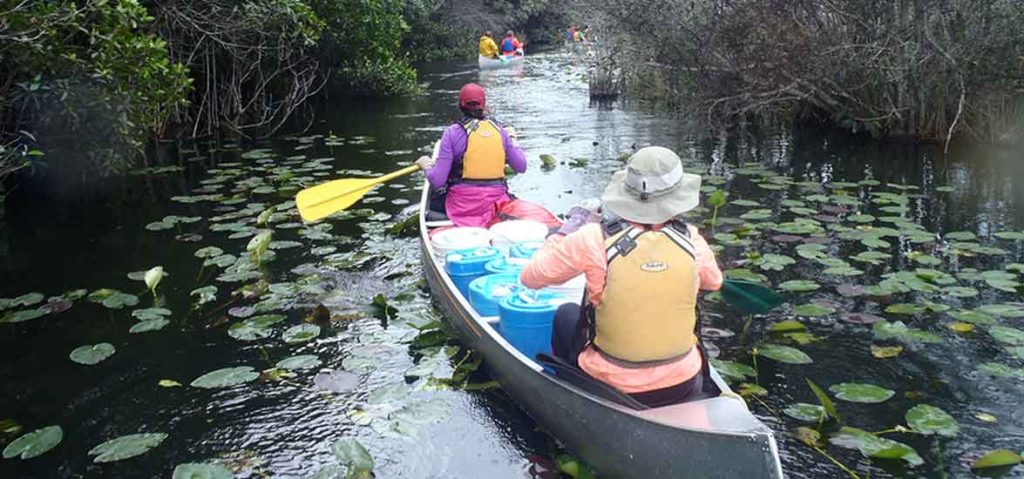
The Parent Workbook
Intercept is a program for the entire family. While teenagers are learning through their expedition, parents are at home investing time and energy into the Parent Workbook. The workbook is a resource guide that includes the same set of communication and conflict resolution skills that your teen is learning on course, and it also includes a questionnaire. Each week you will focus on different areas that will set the stage for the Family Conference during Week Four. The questionnaire focuses on recent life events, family systems, conflict resolution, communication and the restorative process.
Week Two
Responsibility and Freedom: A Reciprocal Relationship
Outward Bound Intercept courses reflect similar struggles at home in an environment that offers more structure, consistency and mentorship. At the root of the adolescent experience in our country is an interplay between the fiery fight for freedom and the grounded necessity of responsibility. On one hand, a teen’s desire for independence often results in outlandish desperation to attain personal freedom. On the other hand, gaining a solid sense of personal responsibility is an important life skill that cannot go amiss at that age. The dance between freedom and responsibility is ripe for tumultuous conflict within a family. On an Outward Bound course, Instructors choreograph this dance in a way where students gain freedom and responsibility hand-in-hand; students cannot have one without the other. On expedition this is as simple as gaining the freedom to choose a destination for lunch or choosing where to set up tents at the campsite. These freedoms come with inherent responsibilities such as planning several steps ahead, knowing a group’s travel pace, as well as maintaining emotional and physical safety.
Achievement Plans: Goal Setting for All
One of the major outcomes of an Outward Bound course is practical goal setting. Students will learn how to apply the use of SMART goals to their daily lives. SMART is an acronym used to generate goals that are Specific, Measurable, Achievable, Relevant and Time bound. Offering a goal setting tool allows students and parents alike to overlay a structure to what is often an ambiguous task. Early on students are setting and achieving goals that mark their success throughout the course. Goals may start out as simple, tangible goals focusing on technical skills such as paddling and portaging. As time goes on, goals gain greater substance and often focus on interpersonal relationships such as addressing conflict or learning about their peers. Parents are encouraged to set and achieve SMART goals as well. This is one of several tools that you can implement into your daily life just as your child does on expedition.
Climber/Belayer
Within the second week of course, Instructors begin weaving in conversations about life at home. It is a metered progression that occurs slowly over time. Coupled with an adventurous day of rock climbing, Instructors ask students to reflect on the quality of their relationship with their parents. They are asked questions such as:
- Do your parents attempt to hold you tight and close?
- Does this feel like it limits your movement?
- Do your parents keep you on a loose leash?
- Do you feel like you could benefit from a tighter rope?
These questions illuminate the experience of rock climbing by extracting metaphors from direct experience. Parents, ask yourselves these questions as well. It could be interesting to compare notes with your child when you see them next after a couple of weeks.
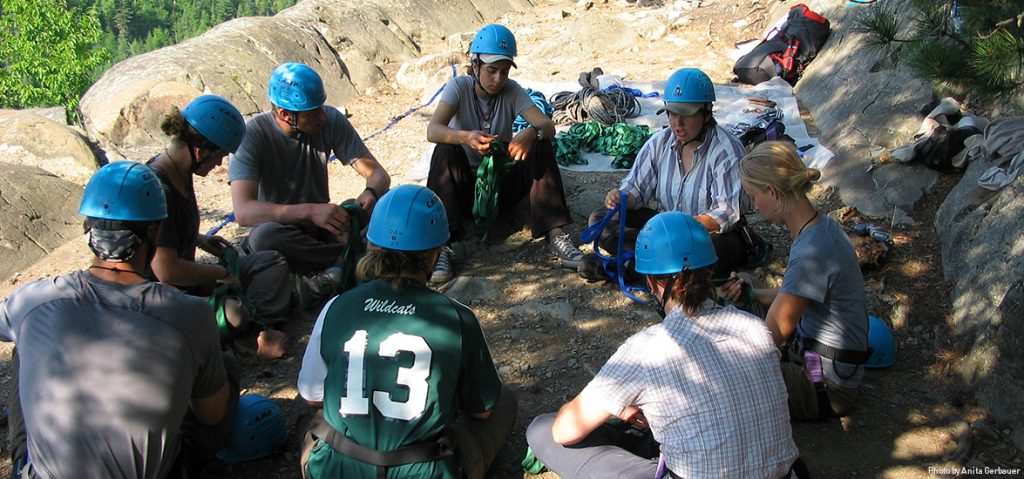
Week Three
Solo: Why does all of this matter? Because the relationship is important to everyone.
After two-and-a-half weeks on expedition the group has finally made it to Solo. Solo is a well-earned time for rest, relaxation and reflection. Similar to the Parent Workbook, students are asked to complete a questionnaire that focuses on communication, family systems and conflict resolution. Instructors will visit each student and spend around 60 minutes discussing the student’s answers and preparing the ground for how the student will approach the mediated Family Conference. In addition, students are asked to write personal letters to each of their parents and/or guardians. This letter serves as the first point of contact parents and teens will have prior to seeing each other face to face on Day 27. Each parent is asked to write a personal letter to their child as well.
Final Expedition: “Practice Launch”
By this point of the course students have had an opportunity to learn all of the skills necessary to not only survive in the wilderness, but to thrive. With the guidance of their Instructors they have learned how to successfully navigate the waters, address conflict within the group and employ a variety of decision-making skills to reach a common goal. Now it is time for them to step forward on their own as Instructors step back, acting as more of a background safety net rather than a figurehead leader. The students take the expedition into their own hands in a way that mirrors where they are at in life – wanting to step out and do it all on their own, yet still needing a safety net to make sure they don’t stray too far off course.
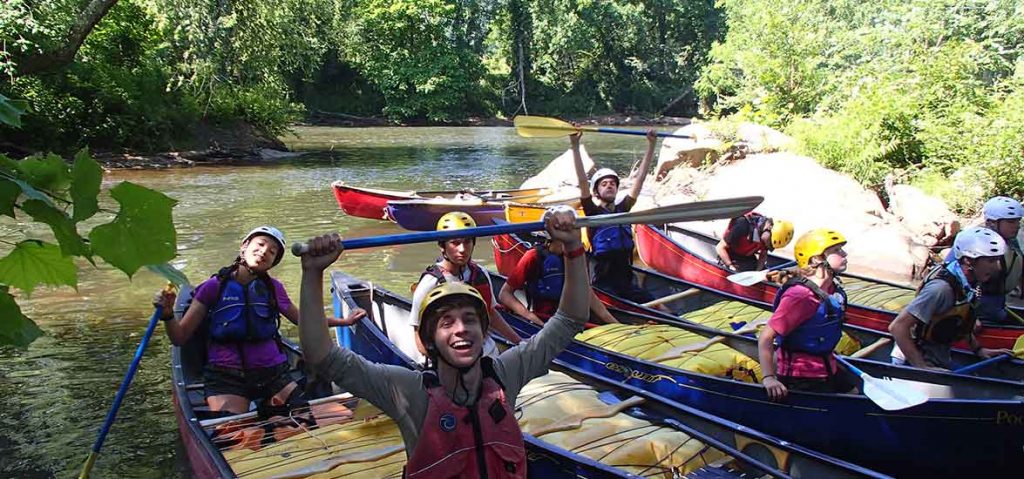
Re-frame Failures and Successes
Inevitably, the Final Expedition is fraught with a series of successes and failures. Some days on course students may travel upwards of 20 miles under their own guidance and leadership. Other days they make take a wrong turn that leads into a labyrinth of islands, coves or spider-webbed trails. The Instructor’s role is to reframe these “failures” as opportunities to learn valuable lessons about adventure, and relate these experiences to life as it unfolds outside of expedition – at home.
Week Four
Family Reunion
On Day 27, the whole of parents and students’ experiences at Outward Bound come together as families reunite for the first time in nearly one month. It is a day full of emotion, excitement and everywhere in-between. Students have an opportunity to present their expedition to their parents, teach them skills such as knot tying and portaging and most importantly they get to engage in an intentional, mediated conversation with one of their Instructors.
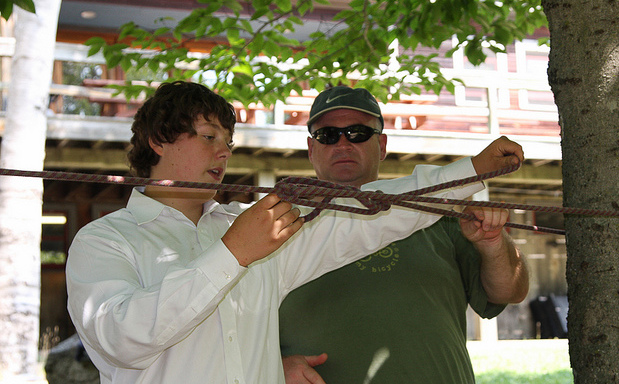
The Family Conference
The purpose of this conversation is to approach tough topics that led to the family’s involvement with the Intercept program and lay the foundation for returning home. At the heart of the Family Conference lies the power and purpose of reconciliation. To achieve this Instructors employ tools borrowed from the field of restorative justice. A restorative process asks questions such as:
- What harm has been done, and who has been hurt by this event?
- What must be done to repair the harm?
- Whose responsibility is it to repair the harm?
This requires all parties to actively participate in an open and honest dialogue, listen actively and cultivate a plan to move forward. Participating in this process can lead to a transformative moment in your family’s life.
Keep the Flame Alive
Day 28 is here, which means graduation for your teen! What a journey it has been to get to this point. But it’s not over yet. Kurt Hahn, founder of Outward Bound, once said, “Outward Bound can ignite — that is all; it is for others to keep the flame alive.” Paddling, portaging, answering the tough questions, engaging in the rich and heartfelt dialogue – that was the easy part for the student. The hardest part of the Outward Bound course has yet to come. Now you and your teen go home and put to test the skills you’ve both learned on your own terms, on your own grounds.
If you made it to the end of the post then you must be sold! If not, go back to the top and read it again. Ruminate on what you and your family may need. At Outward Bound we often live by the phrase, “You gotta go to know.” There is a mystery that lies ahead. Step into the unknown to figure out what exactly your family is looking for. Trust the process. Allow it to unfold.
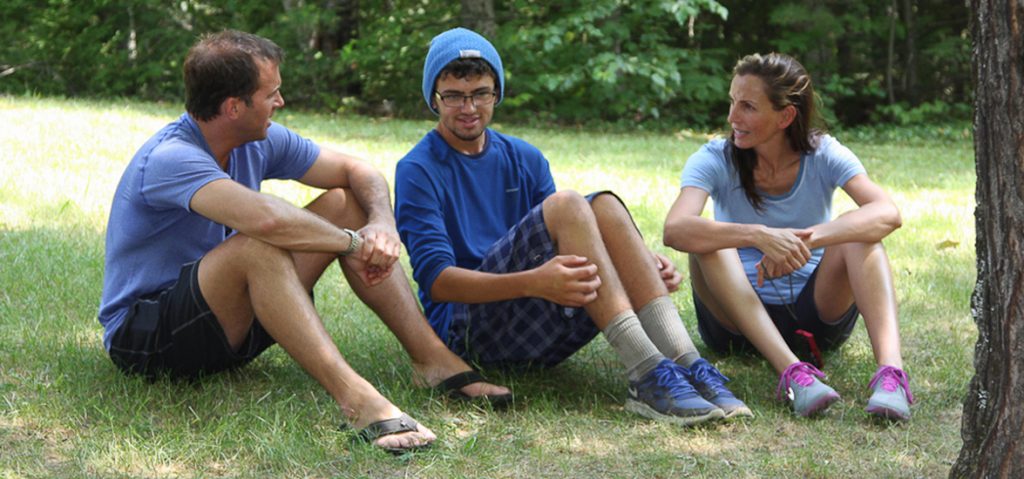
About the Author
Auguie has served the Voyageur Outward Bound School since 2012 in a number of different capacities from Intern to Instructor, as well as Course Advisor. For the last several years Auguie has worked predominantly with Intercept families leading youth on 28-Day Expeditions and facilitating Family Workshops in Duluth, Minnesota. The Intercept program is what initially drew Auguie to work for Outward Bound. Seeing students and families learn that they are capable of much more than they think is what keeps him around.
OTHER POSTS YOU MAY LIKE
Read More
Read More
Read More




